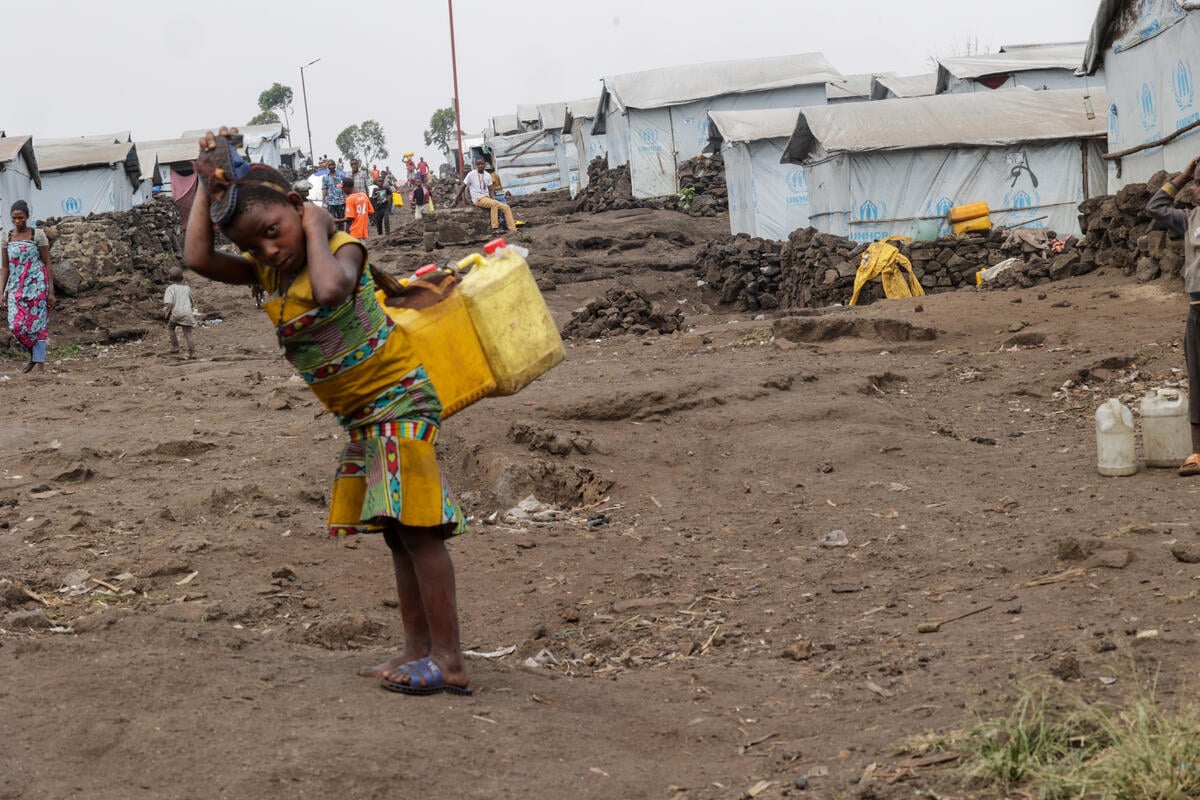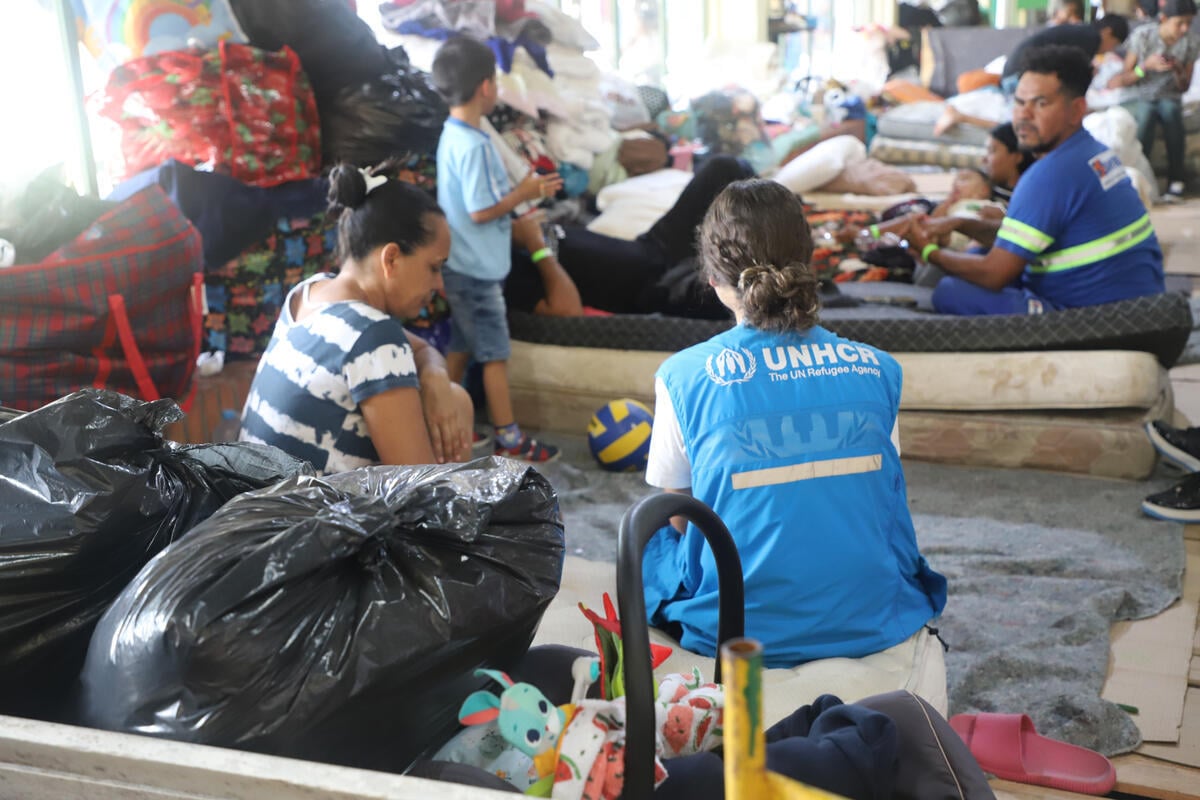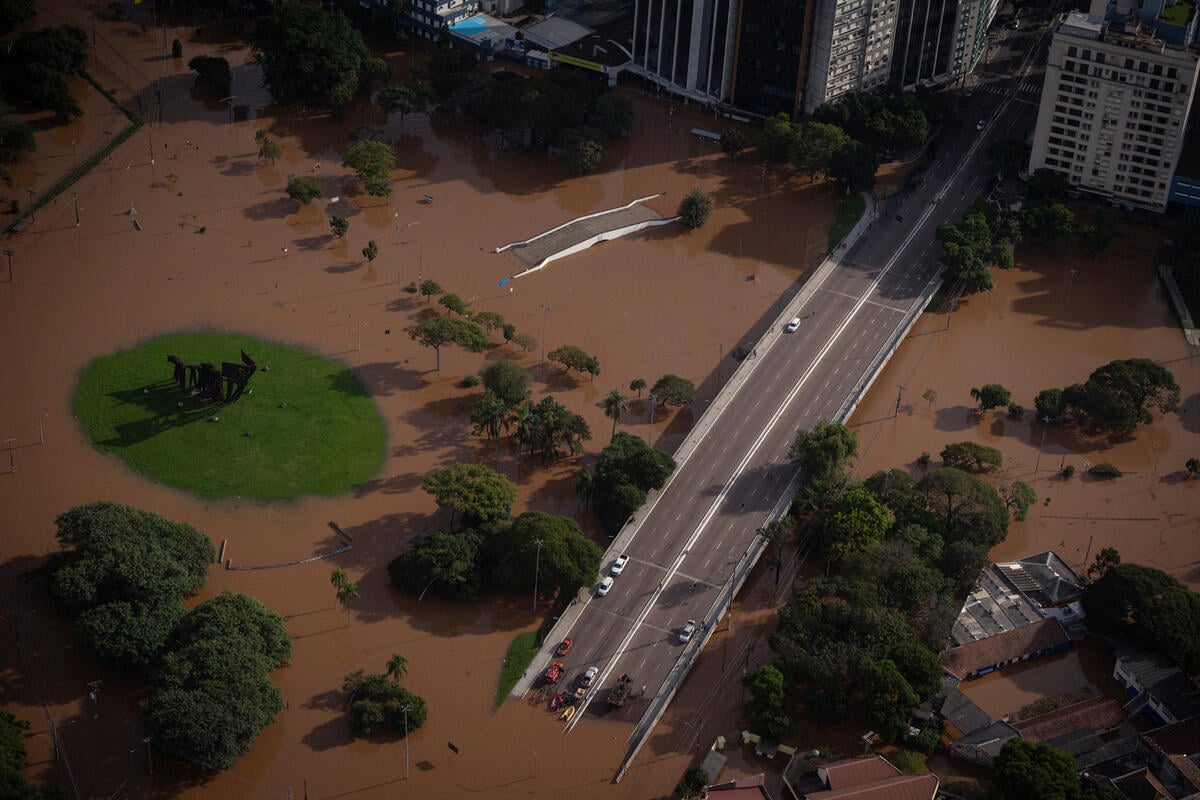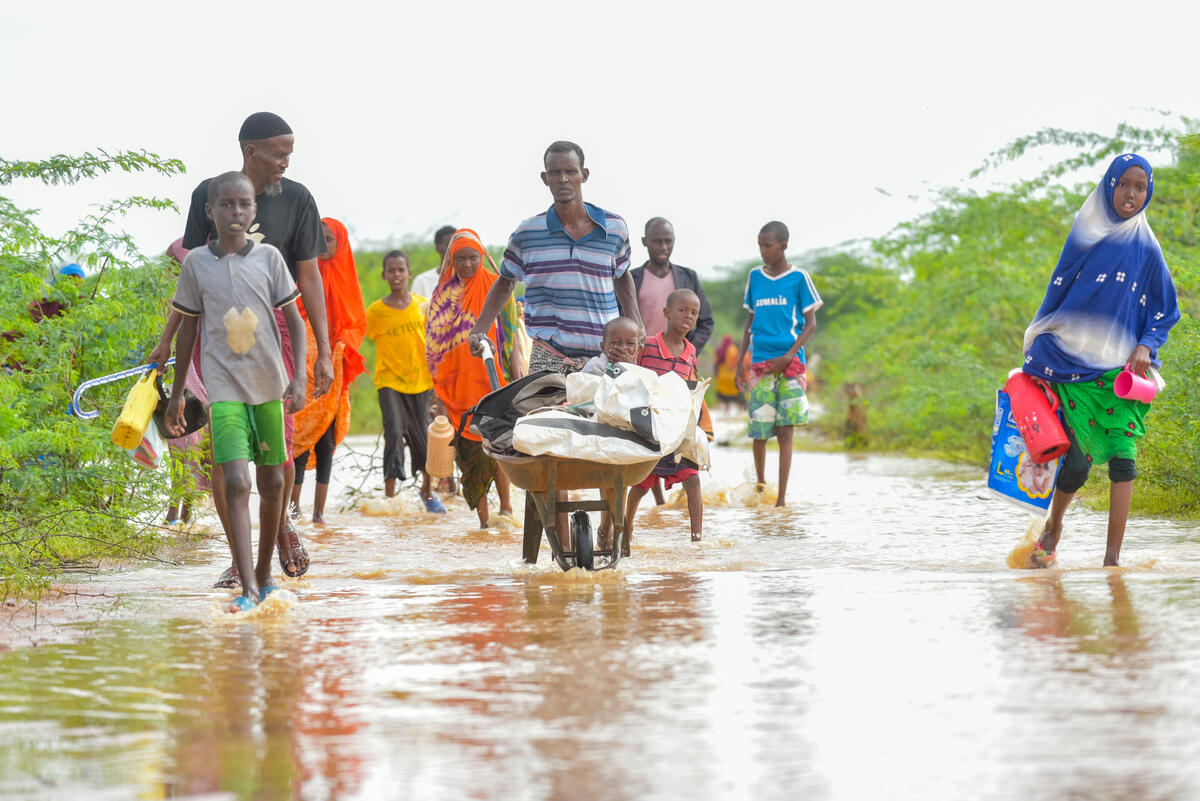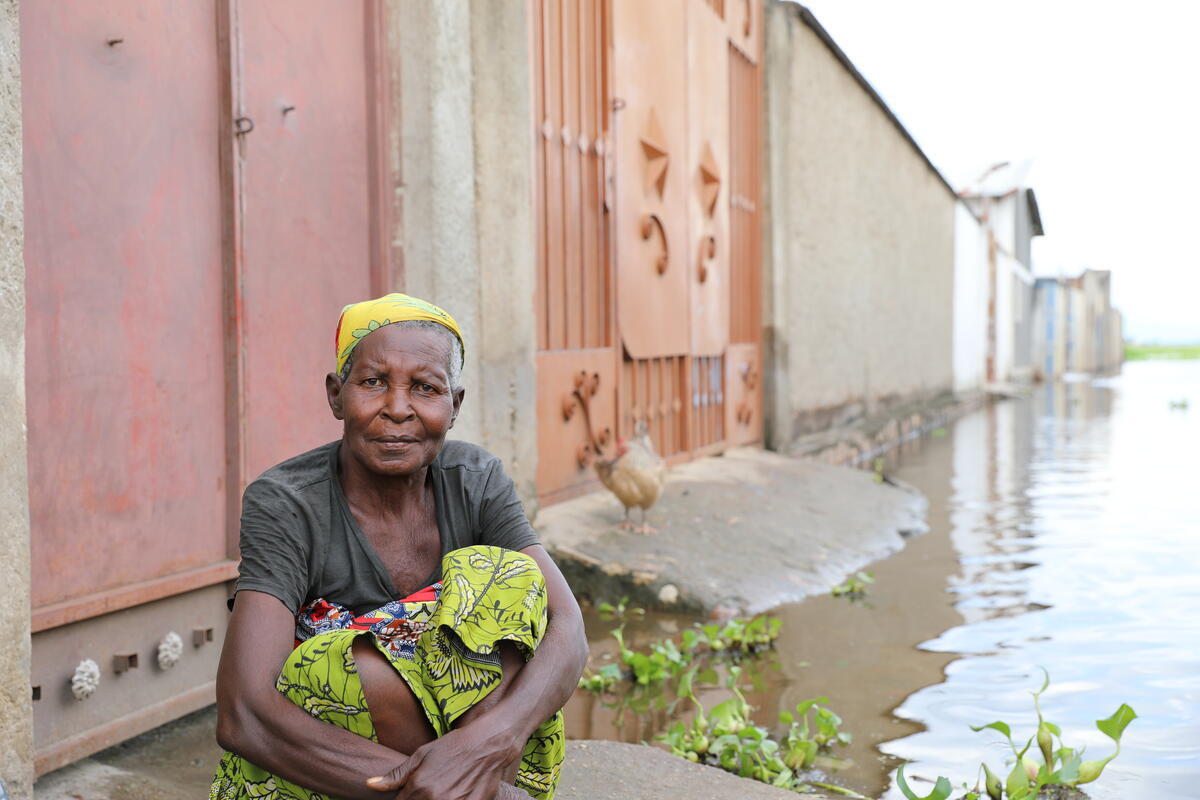More Burundians arrive in Tanzania; returnee numbers drop
More Burundians arrive in Tanzania; returnee numbers drop

DAR ES SALAAM, Tanzania, September 17 (UNHCR) - More than 1,000 fearful Burundian refugees have fled their tiny central African nation for Tanzania over the last two weeks, sparking fears that the intensifying conflict between Burundian military and rebel forces could drive out larger numbers.
Of the over-1,000 Burundians who have fled to neighbouring Tanzania in September so far, more than 300 refugees arrived at Mtendeli reception centre in western Tanzania over a three-day period, from last Friday to Sunday. By Monday, UNHCR staff from Kibondo, close to the Tanzania/Burundi border, had begun interviewing and registering the latest group of arrivals, comprising mainly women and children.
Since the beginning of the year, more than 3,400 Burundian refugees have arrived in Tanzania - more than 30 percent of them during the first half of September. A small number of those arriving in Tanzania said they were former refugees who had repatriated last year or early this year to Burundi.
"While we are beginning to see an upward trend in the number of arrivals from Burundi, the numbers are still much lower compared to the first eight or nine months of last year," said Ivana Unluova, UNHCR's Public Information Officer in Tanzania.
More than 25,000 Burundian refugees fled to neighbouring Tanzania during 2001. By this time last year, for example, the UN refugee agency's office in Kibondo had registered about 7,605 refugees, compared to 2,090 registered by mid-September this year.
Many of the recent arrivals had fled the ongoing fighting in the provinces of Ruyigi and Rutana in eastern Burundi and in Gitega, central Burundi. They said many homes had been burnt in the latest round of fighting, which erupted in July.
On Sunday, a group of refugees, among them old women and children, who arrived in Tanzania through the border crossing at Nyakimonomono, said they had fled from villages near the town of Kinyinyi in Ruyigi province. Their homes had been set on fire, forcing them to escape to Tanzania. UNHCR staff at the border confirmed seeing, through binoculars, thick smoke billowing in the distance, across the Burundi border. The town of Kinyinyi has been badly affected by the recent conflict, said the refugees.
The recent arrivals are also reporting reprisals by the Burundi military on villagers for allegedly supporting the rebels. Others say the military are harassing young men who are being forced to transport goods for the army. There are also reports of forced conscription into the military and the burning of homes belonging to those who refuse to co-operate.
Negotiations on a cease-fire agreement between the transitional government in Burundi and armed opposition movements are set to open in the Tanzanian capital, Dar es Salaam, on Thursday. The negotiations are central to the implementation of the Arusha Peace Agreement signed in August 2000.
Meanwhile, the number of refugees returning to Burundi from Tanzania has decreased. Some 600 refugees are going back to Burundi each week with assistance from the UN refugee agency, compared with up to 1,500 per week a few months ago.
As at the beginning of September this year, some 42,650 Burundian refugees had returned home, 24,593 of them with UNHCR transport. More than 18,000 others had gone back on their own. The agency continues to arrange transport twice a week from camps in Tanzania to the relatively safe northern Burundi provinces of Muyinga and Ngozi.
The drop in return figures from Tanzania has been attributed to the upsurge in conflict between the military and rebels in Burundi. The recent outbreak of meningitis in Burundi may also have contributed to the drop in numbers.
A vaccination campaign was launched in all camps in Kibondo district, western Tanzania, as well as among local populations in the area. Vaccinations have also been undertaken in areas of northern Burundi, such as Muyinga. It is expected that repatriations to Burundi may pick up again following these measures.
Tanzania is assisting some 350,000 Burundian refugees in camps. Nearly half a million others are living on their own outside refugee camps in Tanzania.

